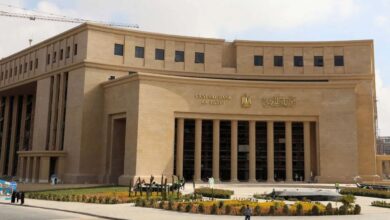Butchers and owners of traditional kebab-and-kofta restaurants–the menu selections of which are usually priced by the kilo–say that skyrocketing meat prices are hurting their businesses.
In Alexandria, Egypt’s second largest city, residents complain that some restaurants have raised their prices in line with nationwide inflationary pressures–even though many of these restaurants have their own meat farms and should therefore be unaffected by the cost increases.
According to Yousri Hassan, public relations manager at Alexandria’s popular fish-and-meat grill Balbaa’s, the Tourism Ministry is trying to regulate prices with a view to achieving a measure of price stabilty and preventing certain restaurants from putting other establishments out of business. Balbaa’s gets its meat from its farms in Tanta and on the North Coast.
“All restaurants have increased their prices, so we had to as well,” explained Hassan, pulling out the restaurant’s new menu.
One kilo of a selection of meats has gradually increased from the standard LE80–the price at which it was long sold for–to LE90, then again to a current LE115. Their mixed grill offering is now listed at LE106 per kilo.
“Of course the price increases have affected business,” said Yousri. “Things have definitely slowed down. There’s been a noticeable decline in sales.”
Butchers in Alexandria say they are dependent on cattle farmers–who are largely responsible for determining meat prices–and are struggling to maintain their customer bases.
The Sharqawy butchershop in Alexandria’s Victoria district is currently selling beef at LE50 per kilo, representing an LE10 increase from previous prices. The increase has put a noticeable dent in business.
“We don’t dare charge more or we’ll lose all our customers,” said Saad, a shop employee. “The LE10 increase has already affected business, with fewer customers coming in. We used to buy four cows a week, sometimes five. Now we only need two.”
“Essentially, our fate lies with the farmers,” he added. “They control the prices.”
Saad expressed confidence that meat prices would fall again in coming weeks due to a scheduled shipment of imported African meat. Late last month, the Agriculture Ministry announced it would supply the local market with 11,000 heads of cattle from Ethiopia and Djibouti.
Some critics, though, blame the price jumps on the government, which, they say, failed to subsidize cattle breeders following the abrupt increase in fodder prices.
In any event, the crisis has some Egyptians–who see the hikes as both arbitrary and unjustified–resorting to their own solutions, including calls for a nationwide meat boycott popularized on social networking website Facebook.
At last count, a Facebook page urging citizens to refrain from buying meat between 25 April and 2 May boasted 1481 guests.




